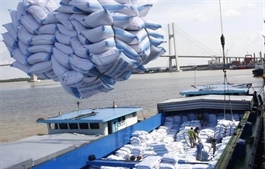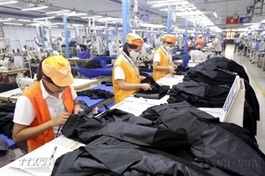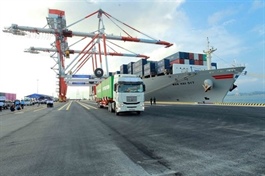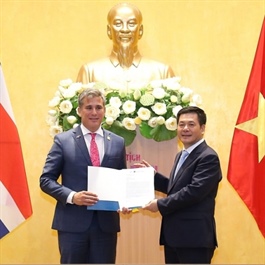Surplus comes on back of import-export advances
Surplus comes on back of import-export advances
The domestic state budget has witnessed a surplus so far this year, reflecting a rise in revenue from export and import activities, but not from crude oil.

The General Statistics Office (GSO) last week reported that in the first seven months of this year, the economy recorded a $10 billion surplus in the state budget. Total state budget expenditures are estimated to have reached $39.5 billion, up 0.6 per cent on-year. All types of spending continued to increase.
Meanwhile, Vietnam’s total state budget revenue stood at $49.5 billion, up 14.6 per cent on-year. Domestic revenues are estimated to stand at $5.26 billion in July. This raises the seven-month figure to $41.46 billion, up 15.8 per cent on-year and accounting for 83.7 per cent of the total state budget revenue.
This mirrors the fact that domestic production activities are performing positively as domestic revenues covers many types of revenues such as from taxes and fees, capital withdrawal by the state from economic organisations, capital from enterprises containing the state’s capital contributions, and money from leasing land and water, as well as from selling state assets.
Revenues from goods export and import activities in July were estimated to have reached $783.3 million, increasing the seven-month sum to an estimated $6.6 billion, up 11.7 per cent as compared to the corresponding period last year, and responsible for 13.3 per cent of the total state budget revenue.
“Vietnam’s import and export activities in the first seven months of this year are recovering from difficulties and on the back of global demand increasing,” said the Ministry of Industry and Trade. “There has been an augmentation in export orders, so the country’s export and import activities are continuing to rise, with positive results.”
In July, the total goods export and import turnover was estimated to have reached $69.72 billion, up 8.7 per cent as compared to the previous month, and up 21.8 per cent as compared to the same period last year.
In the first seven months of this year, the figure is estimated to hit nearly $440 billion, up 17.1 per cent on-year. The total export turnover is estimated to hit nearly $227 billion, up 15.7 per cent on-year.
Vietnamese exporters earned nearly $63.08 billion, up 21 per cent and accounting for 27.8 per cent of the economy’s total export value; and foreign exporters fetched $163.9 billion (including crude oil exports), up 13.8 per cent and responsible for 72.2 per cent of total.
Meanwhile, the total seven-month import value is estimated to come to nearly $213 billion, up 18.5 per cent on-year. In which Vietnamese importers spent $78 billion, up 21.5 per cent, and foreign exporters did the same, with nearly $135 billion, up nearly 17 per cent. The first seven months saw a trade surplus of $14.08 billion.
However, the GSO also reported that the seven-month state budget would have been higher if revenues from crude oil exports did not reduce. Under its calculations, the revenue from such exports, all coming from state-owned PetroVietnam, is estimated to have hit $200 million in July, raising the seven-month figure to about $1.43 billion and down by 2.7 per cent as compared to the same period last year.
PetroVietnam reported that in the first six months of this year, its total revenue reached over $20 billion, representing an on-year increase of 15 per cent. Its six-month contribution to the state budget is estimated to have reached nearly $3 billion.
Lingering difficulties into late this year are expected to affect the state budget situation, with a dent in revenue and a need of more fiscal assistance for the public and enterprises.
Early this year, the government reported that in 2024, total state budget revenue is set to be $71.78 billion, with about half for the central budget and the remainder for localities’ coffers. This is lower than last year’s realised number of $72.48 billion.
In addition, an additional $803.3 million from localities failed to be disbursed for salary reform in the public sector last year will be shifted to this year for the same purpose.
Meanwhile, total central budget expenditure for this year will likely come to about $51.7 billion, in which nearly $18 billion is to be used as a supplement for localities’ coffers.
The government reported to the National Assembly that the state budget estimates for 2024 were calculated based on assumptions that economic growth will be 6-6.5 per cent, and inflation will be 4-4.5 per cent. The government’s policies on tax reduction and exemption in 2024 are expected to be the same and implemented as in 2023.
However, the government is now expecting that the economy will grow at about 7 per cent this year on the back of expectation that domestic production and exports will continue its uptrend until the year’s end.



























